February 28, 2020
ARTICLE SUMMARYFlip-flopping from relief to despair has become a grim phenomena in Turkey, where the glimpse of freedom granted by one judicial authority can quickly be blocked by another. Twitter/@AMetinCetinAhmet Burhan Atac, who has stage four cancer, and his mother have been at the center of controversial judicial actions in Turkey. Photo posted Feb. 16, 2020.
Over the course of two weeks, the travel ban on a mother of an eight-year-old boy with stage four cancer was lifted, reinstated and lifted again, providing a glimpse into the fate of tens of thousands of people trapped by the tentacles of Turkey’s penal system.
The fate of Ahmet Burhan Atac, struggling for his life, topped the public agenda in the past few weeks after his social media plea to be with his mother went viral earlier this month: Ahmet has been receiving treatment for his bone cancer in Germany, but his mother, Zekiye, has not been permitted to accompany him due to a travel ban against her. Ahmet asked that Turkish authorities allow her to leave the country.
After Ahmet’s plea led to a public outcry on social media, a prosecutor revoked the ban on Feb. 7, but another prosecutor reinstated it a few hours later. The second ban was lifted Feb. 21, after which Zekiye began tackling the legal work of obtaining a passport.
Flip-flopping from relief to despair has become a grim phenomenon in Turkey. The glimpse of freedom granted by one judicial authority can suddenly be blocked by another.ALSO READ‘They’re the virus’: Iraq outbreak refuels anti-govt protests
Ahmet’s parents were arrested in February 2018 for suspected links to the Gulenist network. Turkey’s leaders have accused the movement and its leader, Fethullah Gulen, the US-based cleric and former ally of President Recep Tayyip Erdogan, of masterminding the 2016 attempted coup.
Ahmet’s father, Reha Harun Atac, was sentenced to nine years and nine months in prison, pending appeal. His mother, Zekiye Atac, was released under judicial supervision, after two and a half months behind bars, and reunited with her two children, Ahmet Burhan, 9, and Fatma Betul, 7, who had been left with their grandparents. A couple of months later, Ahmet received a diagnosis of osteosarcoma.
Zekiye believes the trauma that Ahmet experienced the day she and her husband were arrested has played a role in her son’s illness. “On that day, Ahmet had locked himself in the bathroom and cried for hours,” Zekiye told Al-Monitor, recounting the difficult situation the family faced. “The doctor said that the tumor might be a couple of months old.”
According to Zekiye, Ahmet’s doctors “lost their hopes” when his body did not respond to treatment in his hometown of Adana. The cancer spread to the boy’s lungs despite chemotherapy and radiation. Zekiye dug in for the battle for her son’s life.
A few months later, a medical center in Cologne, Germany, that had become aware of Ahmet’s case file informed the family that he might benefit from the center’s immunology treatment method. A much-needed breakthrough came when a human rights advocate, Arlet Natali Avazyan, stepped forward to help the family’s social media campaign raise funds for his treatment. Some $50,000 in donations poured in after Avazyan put out the call.
Zekiye, unable to accompany her son to Germany because of her travel ban, sent him to Cologne with his grandmother. “His treatment began immediately, but he soon lost his appetite and wanted me with him,” Zekiye told Al-Monitor. “He appealed to the Turkish officials through videos he shared on social media, but to no avail.”
Ahmet’s plight became known to the broader public when he returned to Turkey in early February to be with his mother, leading to an outcry against her treatment, generating more than 250,000 tweets.
As noted, a Turkish prosecutor lifted the ban on Feb. 7. “Great news,” Avazyan announced on her Twitter account, but the celebratory mood soon ended when another prosecutor reinstated the ban that same day. Such is not unheard of in Turkey.
On Feb. 18, an Istanbul court acquitted and released the prominent Turkish philanthropist and human rights advocate Osman Kavala, jailed on charges of plotting against the government, but authorities rearrested him the same day. He couldn’t even leave the jail.
The government also targeted tens of thousands of academics, dismissing them from their jobs for signing a 2016 petition calling for talks with the Kurds instead of military solutions. They were then denied travel abroad until Feb. 21, preventing them from accepting offers from universities around the world, despite having been acquitted of the charges leveled against them.
Zekiye’s travel ban was one of more than 11,000 lifted on Feb. 21, after acquittals or releases without charges being filled, all stemming from state of emergency measures imposed after the failed coup.
According to Omer Faruk Gergerlioglu, a Turkish lawmaker and prominent human rights advocate who helped bring Ahmet’s plight to the public’s attention, the government has turned the judicial control system into its own mechanism for punishment. The lawmaker from the pro-Kurdish Peoples’ Democratic Party remarked that the justice system inflicts new wounds on society with each passing day.
Hundreds of thousands of people are currently at the mercy of Turkey’s judicial control system as configured some 10 years ago. According to Justice Ministry data, 470,792 adults and 19,268 children were under judicial control as of January 2020, for a total of 490,060. Before dramatically jumping after the coup attempt, that figure had stood at 81,306 in 2016; 63,000 in 2015; and 47,000 in 2014.
Meanwhile, the number of convicts and suspects is on the rise, at more than 250,000 in 2018, up from 120,000 in 2010. The number of detainees, convicts and parolees total some 800,000. Considering how their legal status affects their families, roughly 3.5 million people have a relationship with the penal system.
According to Gergerlioglu, the functioning of the current system has severe consequences for society. More than 600 children are housed in prisons with their mothers, he said, adding that the conditions for pregnant prisoners were also alarming.
“Is it normal for 800,000 people to struggle with the justice system in a country of 80 million?” Gergerlioglu asked. According to him the solution is plain and simple: proper implementation of the law.
As for Ahmet, he returned to Germany Feb. 26 for more treatments, and his mother finally obtained her passport the same day. She lamented, “As the prosecutors prolonged the travel ban, I had to witness the crumbling of Ahmet’s bones.”


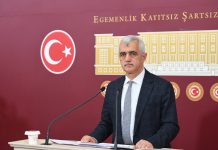
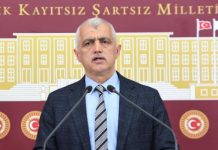


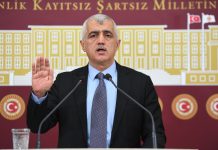
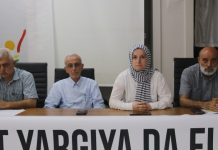



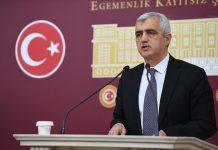
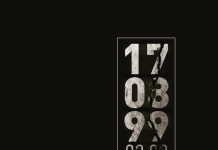
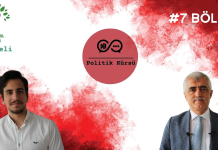
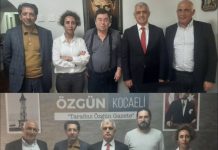
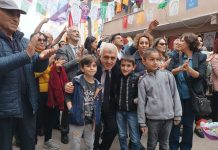
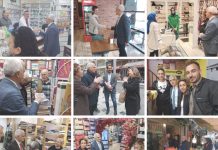
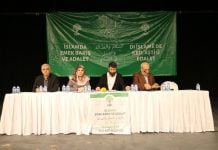






Yorumlar